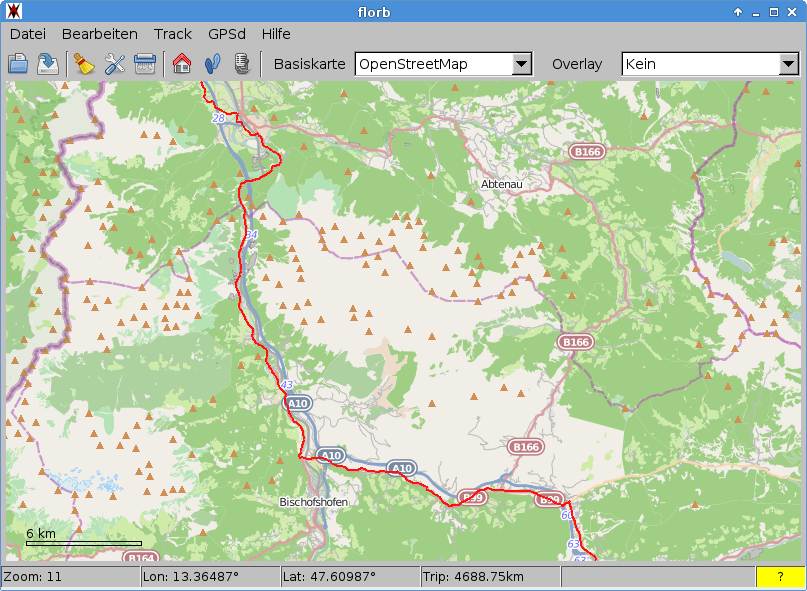

Data is written in gpsd's native format, but a conversion tool is provided. It writes the most recent position data from gpsd to disk at a user-defined interval, flushes IO after each write (so that it's safe to just pull the power on the Pi), and uses two LEDs to indicate status while in the field. The goal is to package all of this together into a "small" (but not necessarily lightweight, based on the components) package that I can put in the outside pocket of my hiking pack, and record an accurate and detailed GPS track of my hikes.

The hardware decision was mainly based on what I had lying around: a Raspberry Pi Zero, a 10,000mAh external battery pack for my cell phone, and a USB GPS (well, I thought I had one, and got far enough into the project when I decided it was missing for good that I bought another). This is a trivial (and not really "supported") project of mine to couple a Raspberry Pi Zero with a USB GPS receiver and a battery pack to GPS track my hikes. Raspberry Pi Zero gpsd logger with status LEDs.Ī longer description of the motivation behind this and the specific hardware that I used is available on my blog: DIY Raspberry Pi Zero GPS Track Logger.


 0 kommentar(er)
0 kommentar(er)
